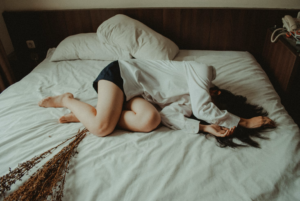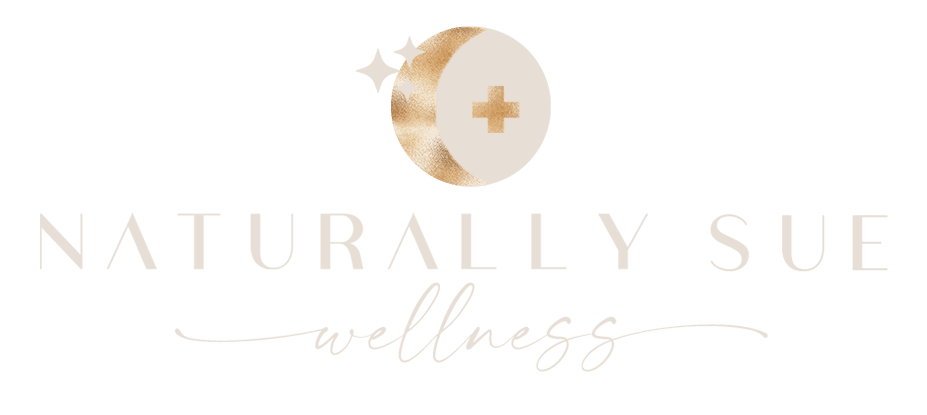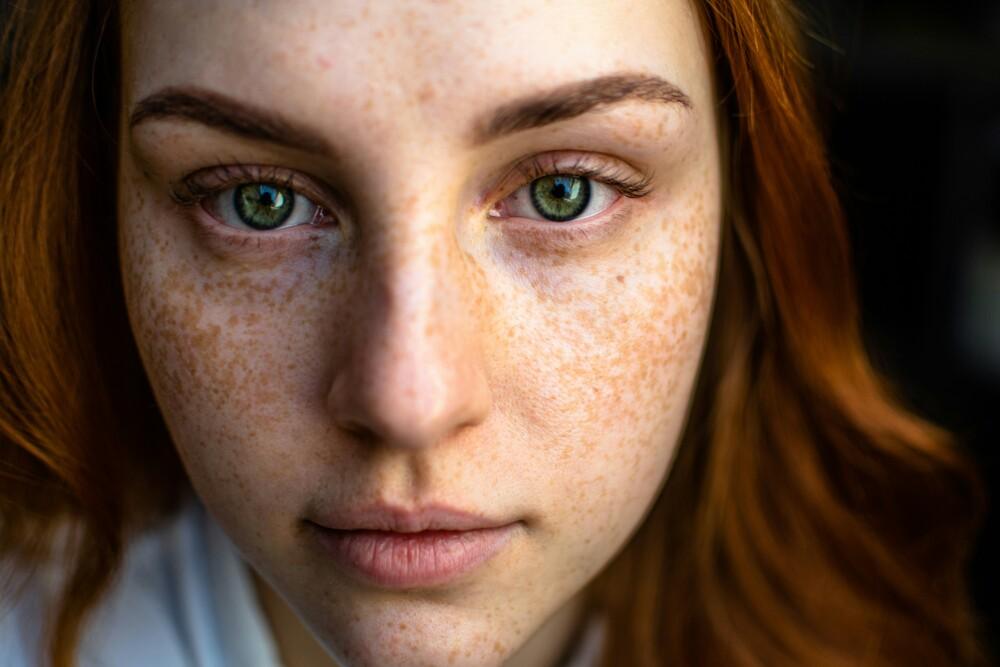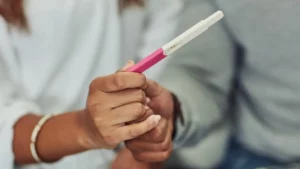Why Accutane Isn’t an Acne Cure-All
Accutane offers temporary acne relief by targeting oil production. Still, studies at Hôpital Saint-Louis, Paris, by D. Lehucher-Ceyrac show that 40-48% patients relapse after 3-5 years. Naturopathic medicine showed that it’s not a cure-all, since it doesn’t solve the root cause (hormonal imbalances, gut issues, etc.).
Side effects are also common with Accutane. This includes mental health issues and organ strain. Naturopathic alternatives such as herbal anti-inflammatories and probiotic protocols offer a safer path to clear skin, without the same risk of relapse.
Conventional medicine frequently overlooks environmental triggers in high-stress environments such as Manhattan that lead to acne. However, naturopathic strategies empower women to seek personalized, preventative tools for an acne-free life. This article will teach you more about root-cause healing specific to NYC patients, without resorting to conventional medicine.
What Exactly Is Accutane, and How Does It Target Acne Symptoms?
Accutane medication is a synthetic retinoid derived from vitamin A (isotretinoin compound). It is used for severe cystic acne forms, but naturopathic medicine warns against its aggressive suppression of natural skin processes.
Here is how it targets acne symptoms:
- Sebum oil regulation
- Accelerated cell turnover
- Anti-inflammatory effect
- Bacterial suppression
- Reduction of sebaceous glands
The naturopathic concern is that this suppression keeps the skin from performing its lubrication process. Accutane doesn’t address microbiome or hormonal imbalances, which means that it masks rather than heals.
Why Might Accutane Clear Skin Temporarily but Fail Long-Term?
Accutane works systemically to suppress oil production and inflammation, which can improve acne in the short term. But it doesn’t address the underlying root causes. These are things like gut imbalances, hormonal shifts, liver detox issues, or chronic inflammation—that often trigger persistent breakouts. That’s where naturopathic and functional testing comes in. By identifying what’s driving the acne beneath the surface, a plan can be created for you that leads to lasting skin health.
Below are the phases of the treatment:
- Sebum Suppression: Reduced oil production leads to temporary acne clearance, but doesn’t treat the cause of acne.
- Bacteria Reduction: Cutibacterium acnes can’t replicate as quickly, but it doesn’t address the reason for bacterial overgrowth.
- Inflammation Suppression: Redness is minimized, but that’s just silencing the symptom.
All these factors add to relapse vulnerabilities. It’s important to learn about hormonal influences on skin health to prevent that from happening.
How Do Individual Factors Like Genetics or Dosage Impact Accutane’s Effectiveness?
Genetics and dosage affect the efficiency of Accutane because not every patient has the same response. Low absorption and incomplete courses result in incomplete results, making holistic personalization a favored choice.
Below are 5 influencing factors of Accutane results:
- Genetic predisposition that affects metabolism
- Dosage calculation that bypasses constitutional types
- Absorption barriers in the gut that prevent the therapeutic effect
- Premature discontinuation that makes way for relapse
- Underlying imbalances such as gastro, hormonal, or emotional stress
Accutane is not a one-size-fits-all treatment, which is why it falls short. Naturopathic customization is more effective for building resilience and reducing drug reliance.
Why Does Accutane Often Lead to Acne Relapse After Treatment?
Accutane often leads to acne relapse patterns after treatment because it does not address the root cause (e.g., hormonal shifts). Various clinical statistics show that natural support reduces relapses by 30-50% when used post-treatment.
Relapse contributors include hormonal fluctuations post-treatment, gut dysbiosis, the need to support detox organs, nutrient deficiencies, adrenal fatigue and stress. Also, look out for environmental toxins and an unhealthy diet.
Naturopathic prevention strategy can address the untreated root causes. This leads to long-term acne remission.
What Underlying Conditions Contribute to Accutane’s Inability to Cure Acne?
Conditions like adrenal fatigue and PCOS contribute to Accutane’s inability to cure acne because it bypasses them. This leads to persistent breakouts because Accutane is more of a band-aid.
See the following conditions with their triggers and remedies:
An androgen hike can cause high sebum production. Hormonal support diets, insulin regulation, and supplements like saw palmetto can be helpful in this case.
This condition is triggered by chronic stress and high cortisol. Data by Dermatology Times suggests that 67% of people go through stressful events before a breakout. Adaptogen herbs and stress reduction techniques restore balance.
An absence of vitamins D, A, and E affects the immune response. A diet rich in antioxidants and supplements addresses this.
This condition is triggered by gut flora imbalance. It can be solved with a probiotic and prebiotic-rich diet.
High insulin kickstarts excess androgen production. It is resolved with low-glycemic diets and nutrients that support glucose (magnesium, chromium, etc.).
Hashimoto’s and hypothyroidism slow skin turnover and prevent proper detox. These are addressed with stress management and thyroid-supportive nutrients.
Naturopathic strategies restore balance through natural countermeasures and support overall wellness.
How Does Poor Absorption or Interfering Substances Reduce Accutane’s Results?
Poor fat-soluble absorption reduces Accutane results because this medicine needs dietary fats. Interactions can diminish the effect and prevent the substance from entering the bloodstream.
Studies at the University of Liverpool and other institutions show that around 60% of medicine will not be absorbed in the absence of dietary fat. Good fats like olive oil and nuts improve absorption.
Alcohol consumption is one of the greatest triggers because it stresses the liver and prevents smooth detox. Supplement conflicts also cause unwanted interactions. High doses of vitamin A affect absorption and increase toxicity.
Gut health issues like low bile and enzyme insufficiency diminish the effect. Naturopathic medicine optimizes these factors while supporting overall health.
What Are the Hidden Dangers and Long-Term Side Effects of Using Accutane?
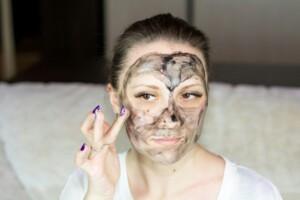
Long-term use of Accutane leads to side effects like mood alteration or liver function imbalances. Studies at the National Institute of Diabetes and Digestive Kidney Diseases show that 15% of patients get mild to moderate liver toxicity.
Common effects are dry skin, photosensitivity, gastrointestinal issues, mood swings, and fatigue. Severe issues include liver problems, teratogenic effects (birth defects) if pregnant. There have been reports of clinical depression and IBD, though the evidence is mixed.
Naturopathic alternatives that focus on hormonal balance, gut-skin axis restoration, and liver detox are a gentler option. Accutane is regulated through iPLEDGE Monitoring, but it still has risks.
Why Can Accutane Worsen Mental Health and What Safer Options Exist?
Accutane (isotretinoin) has been associated with mental health changes in some individuals, including mood swings, depression, and in rare cases, suicidal thoughts.
Studies by Adam P. Bray at the Bristol Dermatology Centre show that isotretinoin influences serotonin production. This substance is essential for proper mental health.
Monitor mood changes through journals and emotional check-ins. You can consider implementing probiotics and gut-healing nutrients (e.g., L-glutamine and omega-3) to support the gut-brain axis.
Natural mood support like ashwagandha (an adaptogenic herb) can be effective for cortisol balance, and holy basil helps with promoting calm and mental clarity. Functional testing strategies, like lab panels, will help you detect deficiencies.
Adaptogens can be super effective as they help modulate your cortisol levels and adapt to stress. Customized treatments are given after naturopathic consultations, based on your levels.
How Does Accutane Pose Unique Risks for Reproductive Health in Women?
Accutane poses unique reproductive risks like birth defects, fertility issues, and even breastfeeding concerns. Studies by the Brentwood Organization of Teratology Information Specialists (OTIS) show that Accutane causes birth defects in up to 35% of unborn children.
IPLEDGE added contraception mandates that require women to be on birth control or undergo regular testing. This worsens acne in some cases.
Naturopathic fertility-friendly acne care restores hormonal harmony without affecting a future pregnancy. Depending on the treatment, some naturopathic treatments can even be followed during pregnancy, although care is advised and it is highly encouraged to talk to your doctor about any new supplements you are taking when you are pregnant as they can be contraindicated.
What Naturopathic Alternatives Provide True Healing Beyond Accutane?
Naturopathic acne alternatives, such as hormone balancing, gut healing protocols, strategic detoxification and drainage methods and nutritional healing plans, offer true healing beyond Accutane. Patients enjoy acne-free skin without the side effects and potential risks.
Topical botanicals like calendula and tea tree have also been used to address microbes and inflammation. Using natural substances on the skin while working on systemic health would yield the best results.
How Can Herbal and Supplement Protocols Effectively Combat Acne?
Naturopathic remedies and anti-acne supplements correct the internal imbalance that leads to breakouts. Below are some of the most common supplements and their properties:
- Berberine Herb: Anti-inflammatory and antimicrobial- necessary if your comprehensive stool analysis shows dysbiosis and infections to kill off.
- Omega-3 Fatty Acids: Reduce sebum production and inflammation
- DIM (Diindolylmethane): Supports balanced estrogen levels- necessary only if you have estrogen dominance or relative estrogen dominance (in comparison to progesterone) or poor estrogen metabolism. You can find these answers on a DUTCH test through our practice.
- Vitamin A: Supports skin cell turnover and can be done in capsules, drops and foods. Please note- do not take over 5 k iu of vitamin A if you are trying to conceive or are pregnant, as it can cause birth defects.
- Zinc: Hormone supporting and antibacterial
- Spearmint: Lowers testosterone and reduces oil production should you get tested for hormones and your androgens are high.
- Probiotics: Rebuilds gut flora
It’s best to customize these treatments based on your root cause. This can be anything from inflammatory to hormonal or microbial. Combine them with a good diet and balanced lifestyle to enjoy clear skin long-term.
Why Focus on Gut Healing to Overcome Acne Where Accutane Falls Short?
If Accutane didn’t provide lasting results, it’s important to look deeper. Conventional medicine often disregards gut health when discussing acne solutions with their patients.
Research continues to show that disruptions in the gut microbiome can drive systemic inflammation, impair detox pathways, and influence hormonal balance. These internal imbalances often show up on the skin.
Healing the gut helps reduce the inflammatory burden, support clear hormonal signaling, and restore the body’s natural ability to detox. This is why it is a foundational step in long-term acne recovery.
The gut’s role in hidden acne causes can lead to relapse due to excessive sebum if the gut microbiota is not balanced. Healing the digestive system becomes a key step in long-term skin recovery.
How to Naturally Prevent Acne Flare-Ups in Manhattan’s Demanding Lifestyle?
You can prevent flare-ups in Manhattan’s demanding lifestyle by supporting your body’s ability to detox toxins you are getting exposed to on a daily basis. You can help to prevent acne from occurring naturally if you strengthen your urban pollution defenses.
Here are a few tips:
- Proper hygienic skin routine
- Use antioxidant serums (vitamin C or niacinamide)
- Flush toxins through adequate hydration
- Reduce sugar and caffeine intake
- Get sun exposure
- Get enough sleep- at least 7-8 hours
- Pick up meditation or yoga to calm your mind.
You can also consider adrenal support against urban burnout which can help support your entire system and contribute to clear skin. It’s important to stay consistent!
What Daily Habits Build Skin Resilience Without Relying on Accutane?
Daily naturopathic habits like mindful nutrition and movement therapies build skin resilience without relying on Accutane. Focus on whole foods that are low glycemic, such as leafy greens and flax seeds, and stay hydrated.
Use sauerkraut and kimchi, and other fermented foods to support gut integrity ( if you can tolerate them and do not have SIBO or MCAS/histamine concerns). Also, consider doing 5-10 minutes of breathwork and mindful journaling before bed to ground your nervous system. Avoid foods like chocolate, since studies at Baylor College of Medicine show that it causes 53% of acne breakouts.
What Specialized Naturopathic Care Is Available for Acne in NYC?
Dr. Susan Cucchiara (simply, Dr. Sue) or Naturally Sue Wellness offers specialized naturopathic care for NYC residents. These appointments are virtual via phone call, HIPAA compliant video call or in person when she is in NYC. Dr. Sparks is also available in her practice who is another excellent ND who also has a masters in chinese medicine and can approach acne from not only the naturopathic perspective, but also using chinese medicine principles.
Dr. Sue and Dr. Sparks look for the root cause of your issue, whether it’s hormonal or gut-linked. Discover full naturopathic services on our page.
How Have Manhattan Clients Achieved Acne Freedom Through Naturopathy Post-Accutane?
Manhattan clients achieved acne freedom through naturopathy post-Accutane by addressing the deeper imbalances.
For example, a woman presented with persistent cystic acne, with fatigue leading to her cycle and high estrogen levels. Gut restoration and diet helped support estrogen balance, and stress management reduced cortisol. Her acne started clearing in just a few months.
Another 20-year-old girl experienced redness and recurring cystic acne despite post-Accutane recovery, which Dr. Sue corrected with botanical acne medicine and omega support.
These client success stories show that naturopathic transformations are more effective than Accutane alone. View additional patient outcomes for more successful results.
Frequently Asked Questions on Accutane Limitations and Naturopathic Solutions
Q: What Natural Paths Exist If Accutane Fails?
A: You can try functional naturopathy, which looks at root causes like poor liver detox and hormone imbalances.
Q: Can I Get Naturopathic Acne Solutions without Accutane?
A: Yes, most acne cases have an internal cause, so you don’t have to take Accutane.
Q: How Soon Can I Get Naturopathic Treatment After Accutane?
A: You should contact your Naturopathic Doctor as soon as possible to begin helping you address any side effects of accutane and help you slowly balance your system to achieve the results you are looking for.
Q: Is Accutane Safe in the Long Term?
A: No, Accutane can have side effects if you use it for more than 4-6 months. This is one of the Accutane limitations that makes naturopathic treatments a better choice.
Q: What Herbs Are Effective If Accutane Fails?
A: You can try herbs like berberine, milk thistle, burdock root, and chasteberry, depending on the cause of acne.
Q: Can Supporting Liver Detox Help Clear Acne?
A: Yes—supporting liver detoxification pathways may help reduce acne, especially if breakouts are driven by hormone imbalance, toxin burden, or sluggish elimination. The liver plays a key role in breaking down excess hormones and inflammatory byproducts. When it’s functioning optimally, the body is better able to clear waste—reducing the burden on the skin as a secondary detox organ. Nutrients like milk thistle, glutathione, and calcium-d-glucarate are often used to support this process.
Q: Why Shouldn’t I Use Conventional Acne Treatments?
A: Acne treatments from the drugstore dry the skin and strip its barrier, much like Accutane. This worsens skin sensitivity in the long run.
Q: What If My Acne Is Worse During Periods?
A: Estrogen and progesterone imbalances worsen sebum and inflammation. Hormonal support helps restore the balance. Getting properly tested with blood work done on certain days in the hormonal cycles and a DUTCH test can help.
Q: When Will I See Improvement After Naturopathic Treatment?
A: You should see the first signs of improvement after about 1-2 months of therapy, but it can take at least 6 months for some to see significant acne improvement especially if there are multiple systemic root causes and the acne has been chronic.
Q: Do These Therapy Solutions Work for Men, Too?
A: Yes, breakouts appear after testosterone dips, which means men can benefit from a naturopathic evaluation as well.
Conclusion: Embracing Naturopathic Wisdom for Acne-Free Skin Beyond Accutane
Naturopathic pathways are the superior choice for holistic, relapse-free results. Finding the root cause keeps acne at bay, without Accutane. Meet Dr. Sue and her approach, and start your journey to clear skin.
